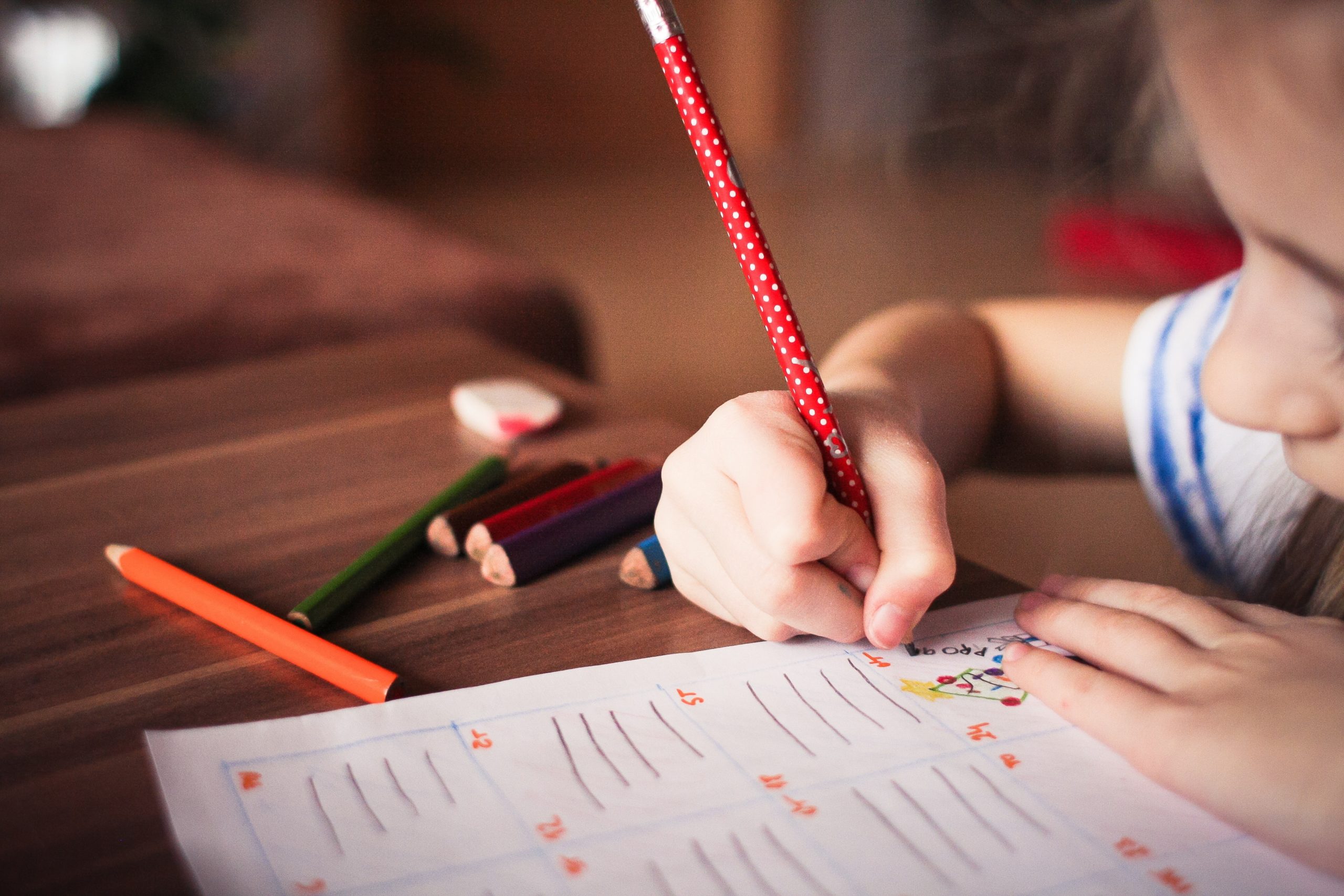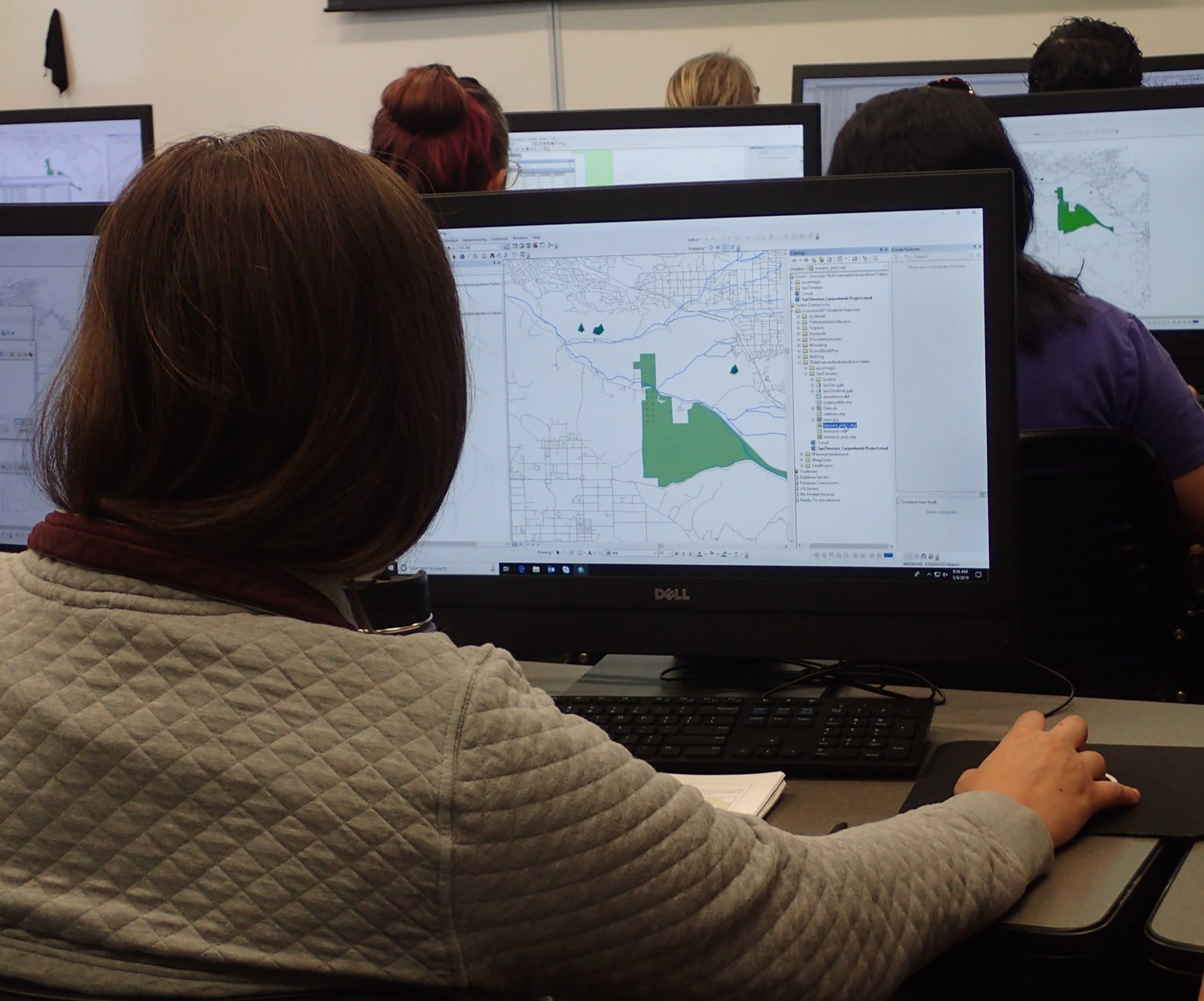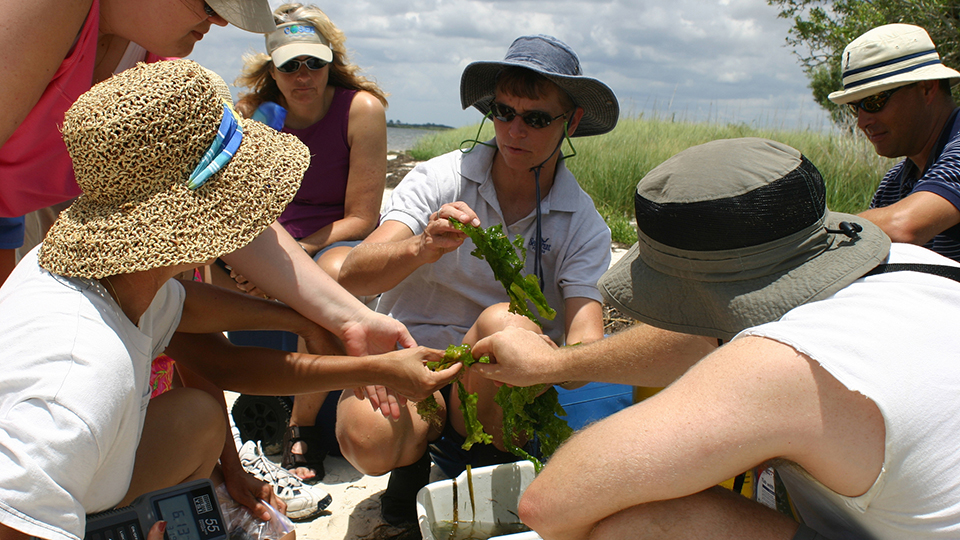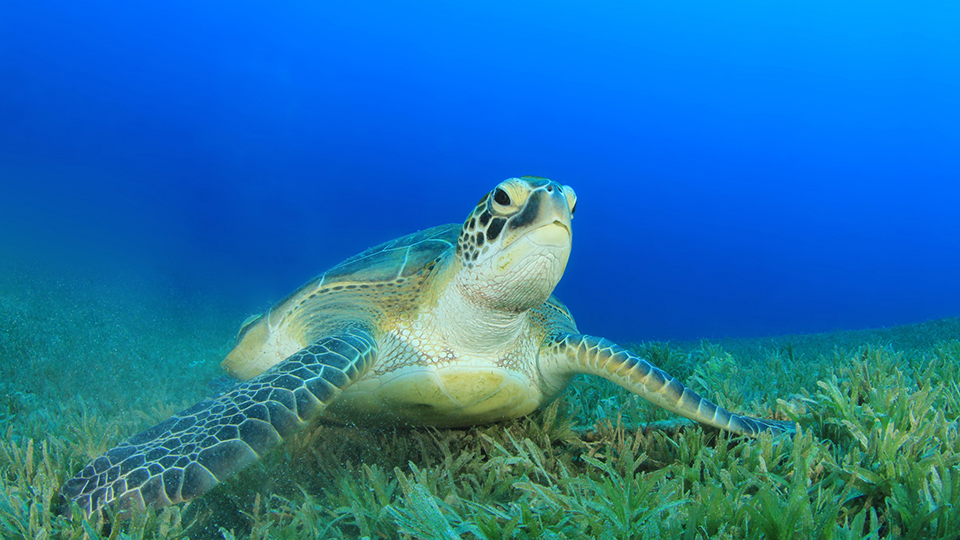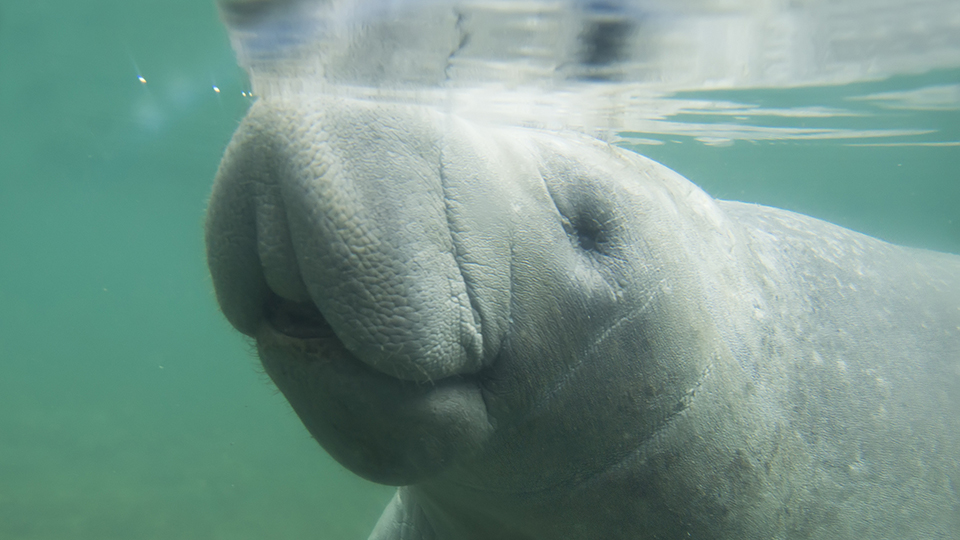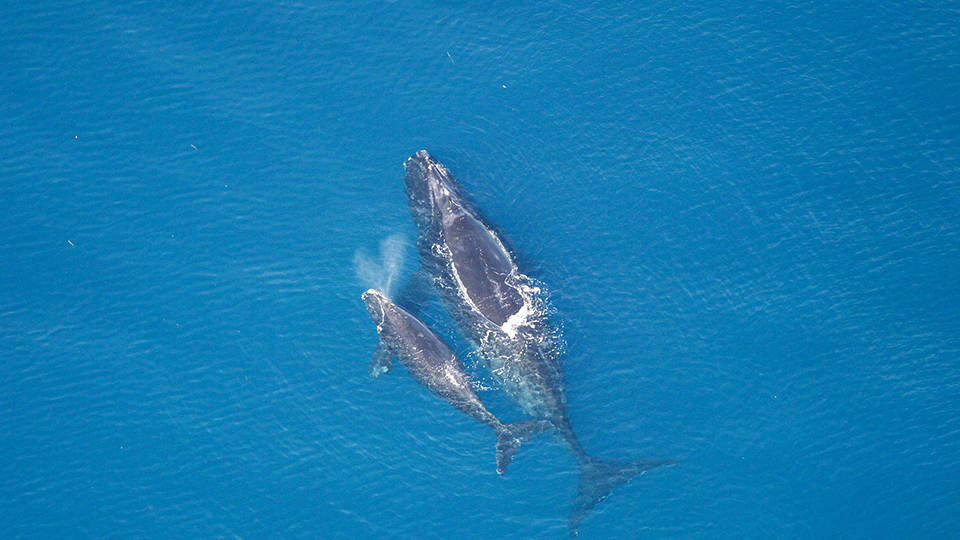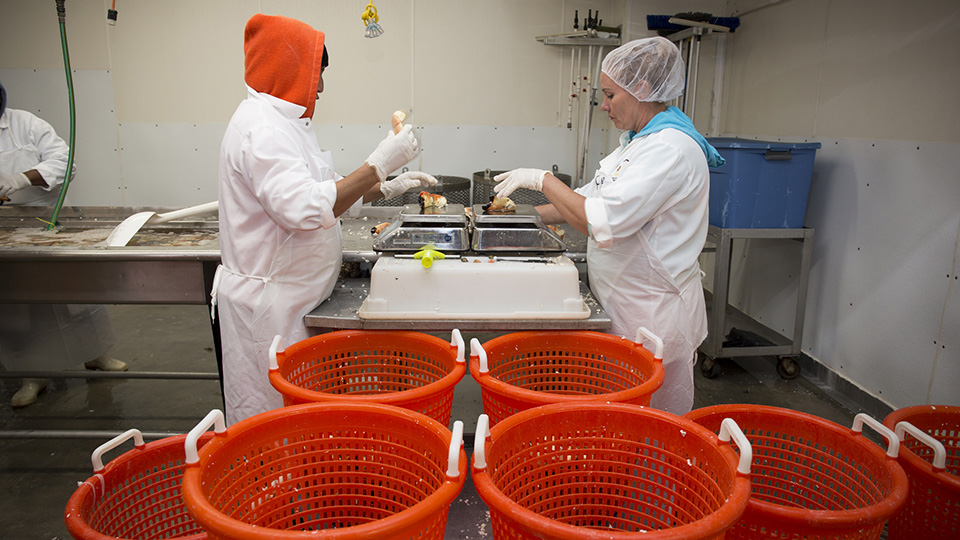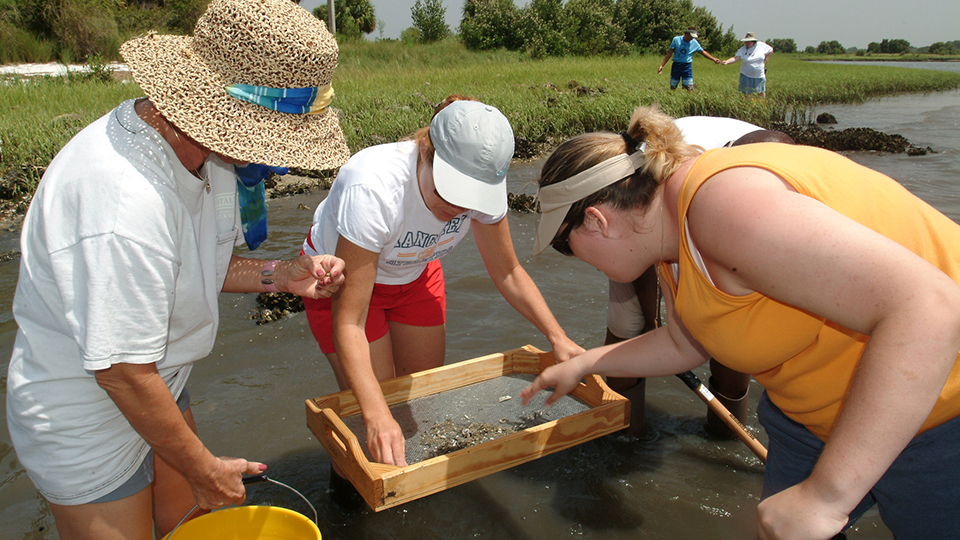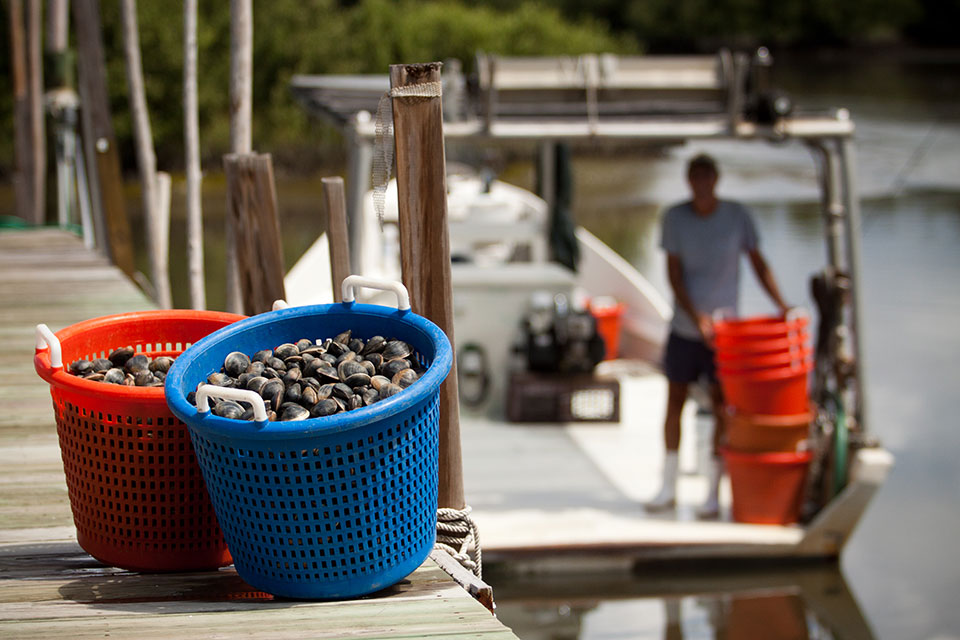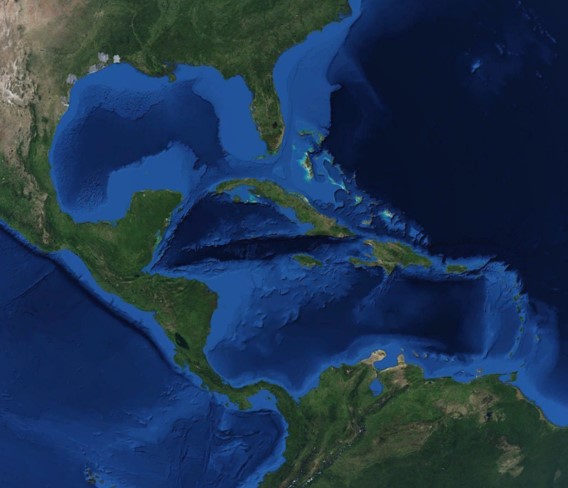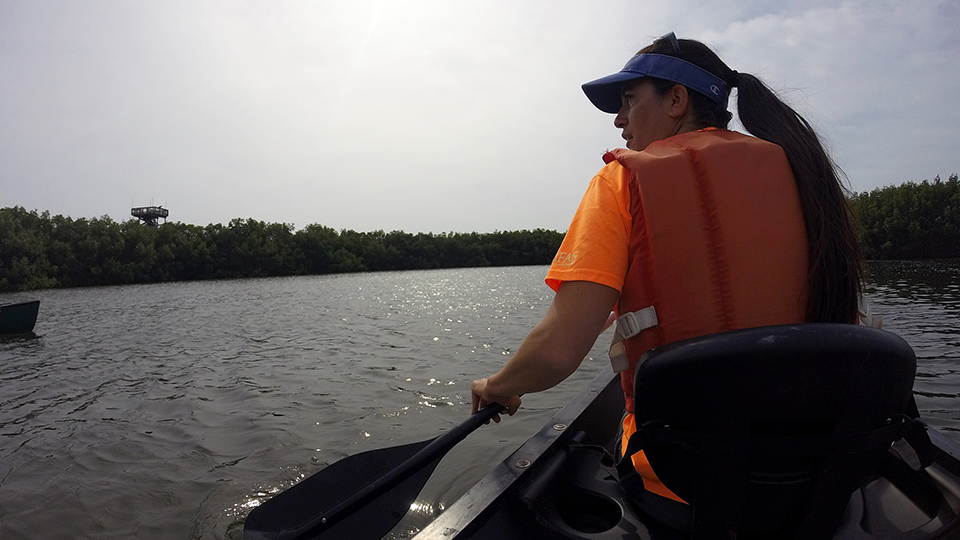Managing Florida’s ocean and coastal resources for economic growth and sustainability grows more complex each day. To secure the future of Florida’s economy and a healthy coastal environment, it is critical that the state develop a highly educated and trained workforce. Florida Sea Grant also seeks to increase marine literacy among people of all ages, and offers a variety of programs and resources in marine and environmental sciences.
Industry Education

One of Sea Grant’s most successful industry education programs is the HACCP program, which promotes training to ensure the safe and sanitary processing and importing of seafood.
Teaching industry requires science-based information that is highly technical in nature and specifically targeted so businesses can better manage operations, develop new product lines, cut costs, increase revenues, or respond to regulatory changes. The annual University of Florida Shrimp School is organized by Florida Sea Grant and the Institute of Food and Agricultural Sciences.
One of our most successful industry education programs is organized in conjunction with the National Seafood HACCP (Hazard Analysis and Critical Control Point) Alliance to promote training to ensure the safe and sanitary processing and importing of seafood.
K-16 Marine Education

We help young people learn more about the state’s marine resources and help them explore future careers in the marine and coastal sciences so they have the skills and expertise to deal with the future issues that face Florida.
We offer marine education programs on topics from aquacultureto manatees to formal and nonformal educators. Faculty offer students opportunities to be involved in coastal restoration and habitat monitoring through dune and saltmarsh plantings and oyster reef construction. We also work closely with Florida 4-H Marine Education and their volunteers in the development and delivery of marine science educational programs.
Graduate Education
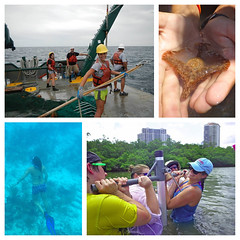
University of South Florida biology major Jessica Smith shared photos from her research trip around the state of Florida on our Facebook page where we share scholarship and fellowship opportunities with students.
We support graduate education through various scholarship and fellowship opportunities, as well as through traditional research assistantships, funded from both public and private sources. In 2012-2013, 101 students were supported through research grants, and $382,000 in scholarships and fellowships was awarded to undergraduate and graduate students.
Adult Education

Participants in the Florida Master Naturalist Program learn about freshwater wetlands, coastal systems and upland habitats.
Providing knowledge about Florida’s coasts to citizens is a key role of Florida Sea Grant’s marine extension service. Many coastal communities have a member of the Sea Grant extension service based in their county’s IFAS Extension office. Frequently, Sea Grant extension faculty lead Florida Master Naturalist Program courses, the highly popular curriculum that uses science-based information and interpretive techniques to promote awareness, understanding, and respect of Florida’s natural world among Florida’s citizens and visitors. Topics include freshwater wetlands, coastal systems and upland habitats.

